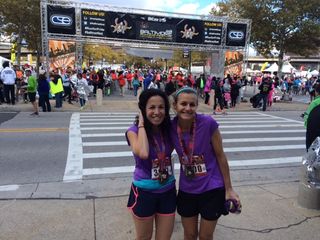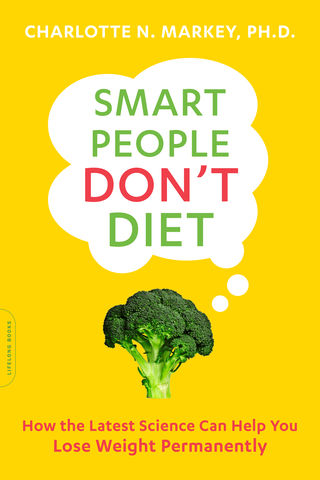Health
My First Marathon
“If you are losing faith in human nature, go out and watch a marathon.”
Posted November 19, 2015
When I ran a marathon with a good friend this past month, we decided we’d create shirts with the above quote on them. We’ve run dozens of races before and given little thought to our attire, but this was the “big kahuna,” the race we’d been training for for 18 weeks. We were going into it with a degree of preparation unnecessary in the past and a combination of anxiety and enthusiasm that we hoped would get us through 26.2 miles. It didn’t hurt that the quote is attributed to the first woman to ever complete a marathon, Katherine Switzer, in 1967.
I didn’t set out to run a marathon to prove anything to myself or others. In fact, when I told people that I was running a marathon this fall, they almost universally asked me, “Why?” I never had a clear answer aside from, “It’s one of those bucket list things.” According to research, marathoners usually indicate that they are motivated by fitness, health, self-esteem, and even social goals. Truthfully, even now that the marathon is behind me, I can’t be sure why I embarked on the journey that began with training in mid-June and ended with the Baltimore marathon in mid-October.
I haven’t always been a runner. I ran for one year on the high school track team and a bit in college to stay in shape. I didn’t start to run “seriously” until a few years ago when my children were old enough and my job stable enough that it was possible to schedule in regular physical activity. Running required only shoes (no gym membership) and was a good excuse to spend some time outside – which, research indicates has benefits for mental health beyond exercise in “unnatural” environments. Running was relatively easy for me and I found other women I enjoyed running with. I started with a 5K, worked my way up to Philadelphia’s Broad Street Run (10 miles), then to over half a dozen half marathons. It felt like it was time for the next challenge.
Every time I find myself at the starting line of a relatively long race when the sun has barely risen, I wonder who all of these crazy people surrounding me are. But, there appear to be more of us year after year. Running USA’s annual marathon report documented the largest number of marathoners ever in 2013 (the 2014 report; the most recent available): 541,000 finishers and 1,100 races. Marathoners are slightly more likely to be men (57%) than women and more are between the ages of 25-34 than any other age group. It wasn’t too long ago that I thought that someone would have to pay me if I was going to run more than a few miles. But now, here I am, for better or worse, participating in some sort of race nearly every month.
Perhaps, my story would be more compelling if there was a plot twist; a challenge I had to overcome to make my training or the actual running of the marathon possible. There were days when it was unbearably hot and training for a couple of hours seemed unreasonable. There was sleep lost and time I should have spent engaged with my children. Some days I was exhausted and cranky. But, there was no obvious hurdle on this journey. I just kept putting one foot in front of othe other and hoped for the best. As with many things in life, the combination of perserverence and luck are often all you need.
This isn’t to say that I began running—and ultimately running a marathon—just because I needed a hobby to fill my time. The health benefits of exercise—running in particular—have been examined at length. In general, research indicates that people who are regularly physically active tend to live longer. In a study published in the American Journal of Epidemiology, which followed both joggers and nonjoggers from the Copenhagen City Heart Study across more than three decades, men who regularly jogged were likely to live an average of 6.2 years longer then those who didn’t and women who jogged were likely to live an average of 5.6 years longer than those who didn’t. However, in a study that delved more deeply into the running habits of men and women who participated in the Copenhagen City Heart Study, a more nuanced conclusion was reached. The gist of these findings suggest that the optimal amount of time to spend running per week is 1-2.4 hours. (At the peak of training for my marathon I was running for around 8 hours per week.) Light and moderate joggers had lower mortality rates than both sedentary nonjoggers and strenuous joggers.
If you are looking at outcomes other than longevity, there’s a case to be made for running distance—even marathons. In a small study that compared marathon runners to a control group of nonrunners, the marathoners were leaner and showed evidence of greater respiratory health. Other research indicates that marathon running may protect people from undesirable changes in body composition and skeletal changes that typically accompany aging. Further, running appears to improve mood, but the extent to which the “antidepressant effect” of running is attributable to actual running or expectancy effects remains unclear.

It’s hard to say if training for or running a marathon benefitted my mental health. At the end of my marathon, I was tired and relieved, but in some way I felt a bit lost. I was so accustomed to planning my weeks around my runs that I wasn’t sure how I would proceed to structure my days without a training plan. However, as more time passes, I feel proud of myself. I feel lucky that I was able to accomplish something as ambitious as a marathon and that I had the social support that made it possible. Not only do the words of Katherine Switzer resonate with me, but many others’ do as well. Eleanor Roosevelt’s (1960) “You must do the thing you think you cannot do” comes to mind. But, perhaps I like Ezra Klein’s sentiments the best when he wrote, “The finish line at a marathon is a small marvel of fellowship. Everyone is there to celebrate how much stronger the runners are than they ever thought they could be.” There is something unmistakably joyous about finding a way to pleasantly surprise oneself.
Copyright Charlotte Markey 2015
Smart People Don’t Diet (Da Capo Lifelong Books and Nero) by Dr. Charlotte Markey is available now, here. You can follow Dr. Markey on Twitter (@char_markey), Facebook (Dr. Charlotte Markey and SmartenFit), Pinterest and on her website Smart People Don’t Diet (www.SmartPeopleDontDiet.com).





